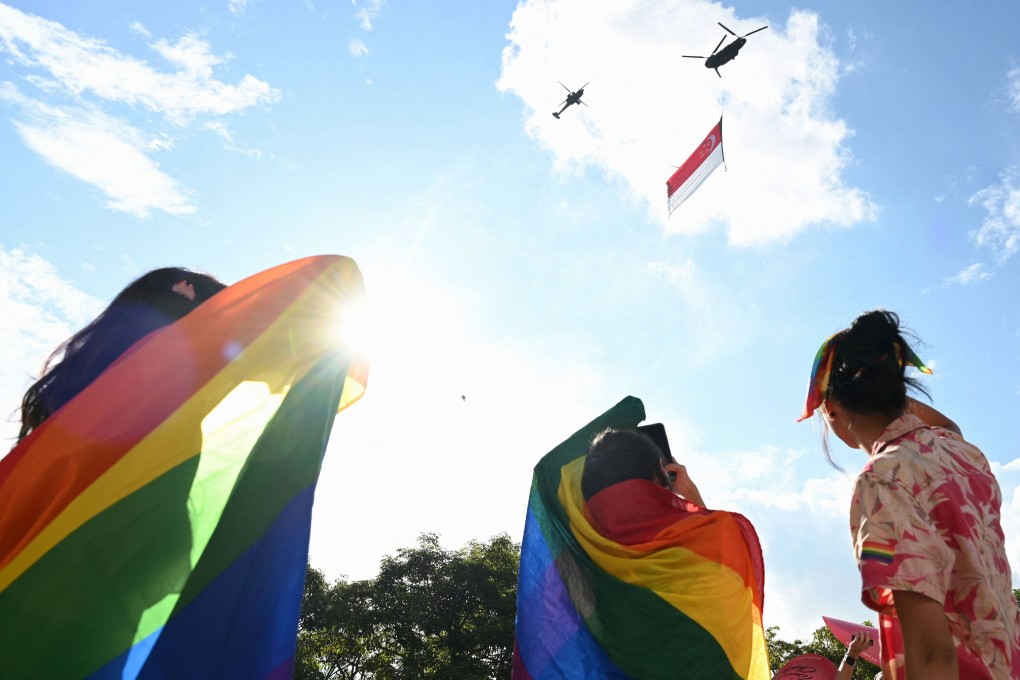Singapore considering law to fight cancel culture amid LGBTQ rights debate
- Singapore is seeking to protect residents against online pressure over expressing views on topics including an ongoing debate on LGBTQ rights
- Potential new legislation comes as the government is preparing to repeal a colonial-era law that criminalises sex between men

“We should be encouraging people to be able to express their viewpoints on all sides as long as it’s not offensive and doesn’t descend to hate speech,” Law Minister K Shanmugam said in an interview with Bloomberg Television. “If we find the right solutions, yes, that should be something that we could see in legislation in the near future.”
“Religious groups, in particular, feel very put upon because they feel whenever they express their views they are attacked as homophobes,” he said. “So there is a line between expressing your view on religion and becoming homophobic or engaging in hate speech against LGBT groups.”
Shanmugam said Singapore will be amending the constitution, to make clear that it is Parliament’s prerogative to define marriage as being between a man and a woman so that it cannot be challenged in court. This has been widely seen as a compromise with conservative and religious groups and ensures that only a parliamentary vote can make future changes to that definition.
